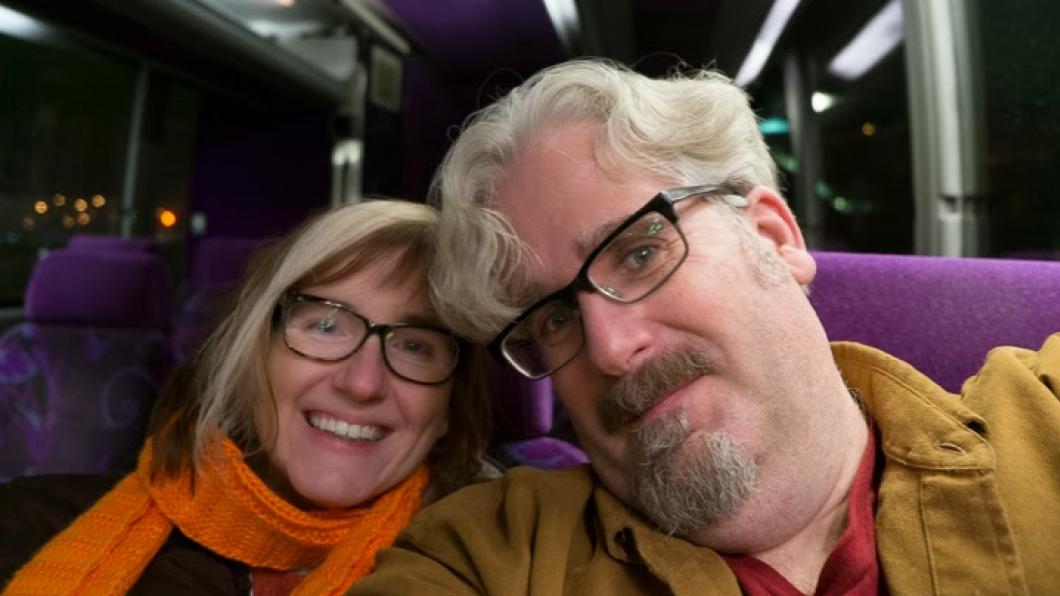
The 'unwelcome' mat
By Steve Kean
I love Toronto, I really do. But sometimes I just don’t feel the love in return.
A few weeks ago was one of them. I was at St. Lawrence Market getting supplies for dinner with my wife and a friend when my favourite cheese guy told us that he was leaving to manage a new restaurant in the neighbourhood. But the new hot-spot-in-the-making—in a historic building—won't be wheelchair accessible, he said, so I won't be able to check it out.
I have spina bifida and use a wheelchair.
I've been inside 400-year-old buildings in the U.S. that have been retrofitted, so I don’t buy the “well, it’s a historic building” argument anymore.
In 1967 my parents were supposed to be rejoicing in the birth of their first child. Instead, they watched helplessly as concerned doctors and nurses rushed to save my new life. Since that fateful day I've had over 15 surgeries and probably consumed more than $100,000 in health-care dollars. A system of people, most who've never met me, has expended substantial resources to keep me alive.
So why then is it that the system that valued me so highly when I was born doesn’t deem me worthy of having an accessible environment? Access means I can contribute and live a full life.
Too often, our health-care, businesses and city attractions and amenities seem to work against people with disabilities and their families.
Is it because we're not cute little babies anymore? Do I not matter because I'm a grown up—sometimes smelly, sometimes scruffy? Does the government believe that I should take care of all my needs just like any other adult?
Well, I can take care of most of them. I do a job, two in fact. I help to pay a mortgage and even clean the place. And, I cook. In my own home, designed from the floor plans to meet my needs and those of my wife, everything works. Our little box in the sky is my sanctuary. There I feel welcome. But life is lived outside too, and that’s the problem.
Sometimes as I wheel around Toronto I notice every barrier that society has put up to make me and other people with disabilities feel unwelcome.
I count every step. Every staircase. Every door without an automatic opener. Then there's the insensitive jerk who luxuriates in the comfort of the oversized, accessible public bathroom stall as I wait, trying not to piss my pants.
Usually I am 'grace under pressure.' But occasionally I come apart. I just snap. By the time I get home I'm raw. I need a hug. I need to vent.
There, in my soft place to land, I feel the warmth and love of my wife's hug. She listens quietly and intently as I recount my day. Sometimes I scare her: “Why did they bother to keep me alive and healthy only to throw me out into a world that doesn't appear to want me?” I'll say.
Businesses see accessibility as an added expense and don’t see the value. Many employers see a wheelchair or some other difference and don’t see the skills and abilities of a person. They have to be shamed or worse, forced by the law, into making people with disabilities part of the equation.
I've thought a lot about how I can cope better in a city that makes me feel like a burdensome afterthought, instead of an integral part. Maybe some of my ideas can help youth with disabilities and their families.
First, seek out that hug. Family and friends are on your side and we all need allies when we leave our sanctuaries and go after what life has to offer. Once your spirit is bolstered and a little less raw and raging, look carefully at the particular barriers that are getting in your—or your child's—way.
Who’s directly responsible for a barrier? Who can help you take it down? Try talking to them. It might just get fixed and you’ve helped not only you, but everyone with a disability who comes after you.
Some walls that get thrown up in front of us can’t easily be torn down and so all we can do is try to work the problem. Speak to someone on the ground, maybe the store manager. If that doesn’t do it, work your way up the line.
Toronto hasn’t put out the welcome mat for people with disabilities. Will it ever?
I can’t wait. Time is moving forward and limited. I am squeezing every ounce of life out of my years, to borrow from a cliché. See the golden light first thing in the morning. Take a picture in your mind or with your camera or phone. But see it. Feel it. Notice everything you can.
When the things you can’t access get under your skin, ask for that hug and then fight just a little for change. Other people will notice. The next person with a disability will be able to spend more time here enjoying life, and less time struggling and feeling excluded, thanks to you. Maybe they'll even feel welcome in Toronto, like they belong.
Steve Kean works three days a week as programs and services coordinator at The Spina Bifida and Hydrocephalus Association of Ontario and two days a week as Steve Kean Photographer, doing commercial photography. Visit if you are a foodie!